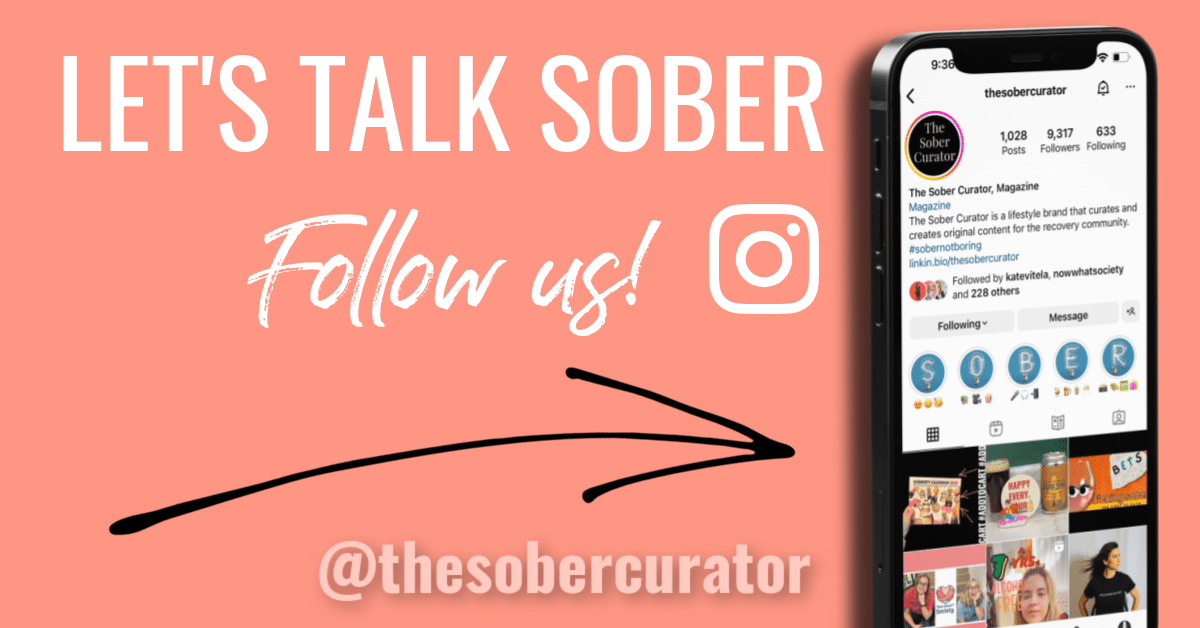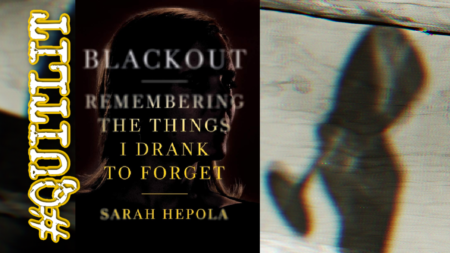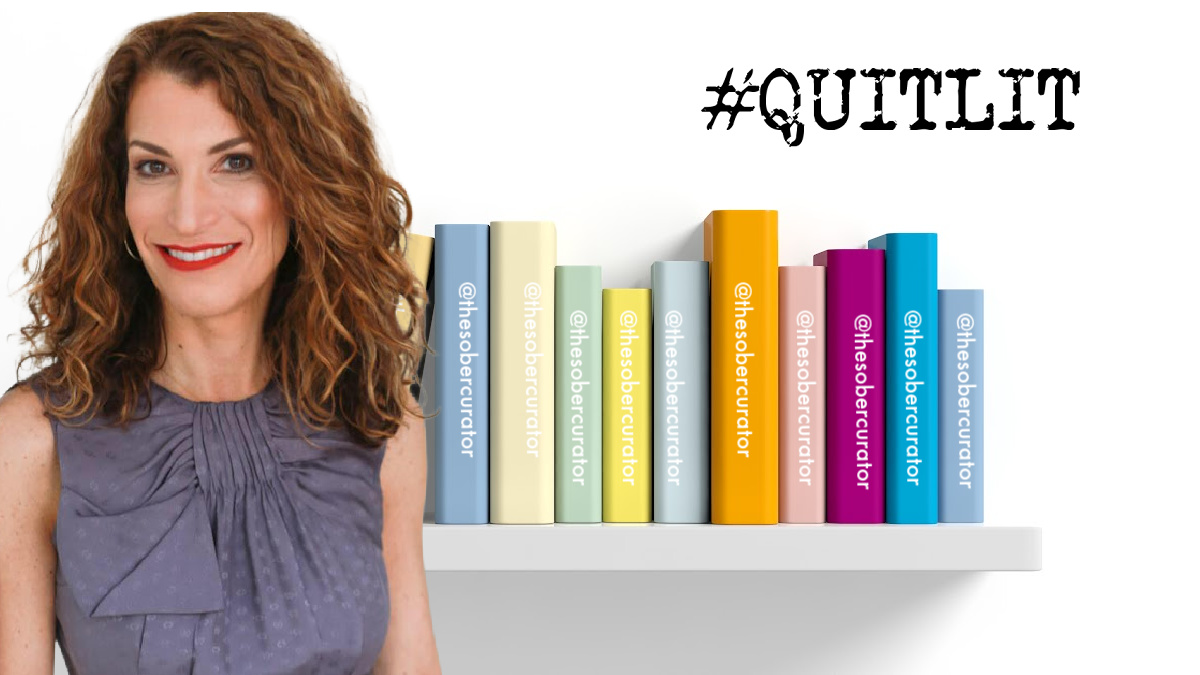
On a Thursday afternoon this past summer I got my fangirl moment with Lisa Smith, author of Girl Walks Out of Bar. Sitting at my parent’s dining room table in my childhood home, I eagerly waited for Lisa’s zoom box to show she had logged into the call. Armed with questions, I couldn’t believe I would be connecting with her in the middle of a global pandemic. I have read and re-read her memoir many, many times.
Lisa’s book resonated with me on so many levels. Many high functioning, successful people hide their addictions to alcohol and drugs. I know I did. Or, I thought I did anyway. Her lows were my lows; the black-outs, drinking around the clock, the cocaine, the lies, the depression, waking up in strange places. Yes, I knew this storyline all too well.
Spoiler Alert!
Spoiler alert! She gets sober by the end of the book. No sense in burying the lead here folks. And that part really resonated with me too. Sobriety, the act of getting sober, looks different for everyone. Remarkably, Lisa breaks her habits with one 72-hour rehab stay followed by group therapy and frequenting 12 step rooms. For most addicts that may not be sufficient time to make the shift. However, in Lisa’s story, there was a clear psychological shift that occurred when she checked herself into rehab. This felt similar to my own experience.

While that is not exactly how my story went, I did get sober after having my own personal burning bush experience. Forgoing the highly recommended inpatient treatment, I did an outpatient treatment in the evenings after work for three months along with almost daily visits to 12 step rooms all over the greater Puget Sound area.
I was taught many things in my early formative years of sobriety by those who had gone before me. One of the most important was to look for the similarities in others and not focus on the differences. Reading Lisa’s memoir in many ways felt like I was reading my own. Even though I was nearly a decade sober when I read her book, it brought me peace of mind to identify with another professional female’s personal struggles with addiction. There truly is comfort in the identification process.
In fact, Lisa is the one that inspired me to eventually want to write my story, even if I’m the only one that ever reads it. I got sober in 2006 and I have to tell you, the self-help section of Barnes & Noble really didn’t have much to offer that spoke to me. Over the last few decades, thankfully, that has changed.
Actually, it is changing. All of the time. As more and more people share their struggles with addiction in whatever form that takes, books, blogs, Ted talks, and even Instagram, it chips away little by little at the stigma that has surrounded this topic for far too long.
The Sobees #QUITLIT Score: 5 out of 5

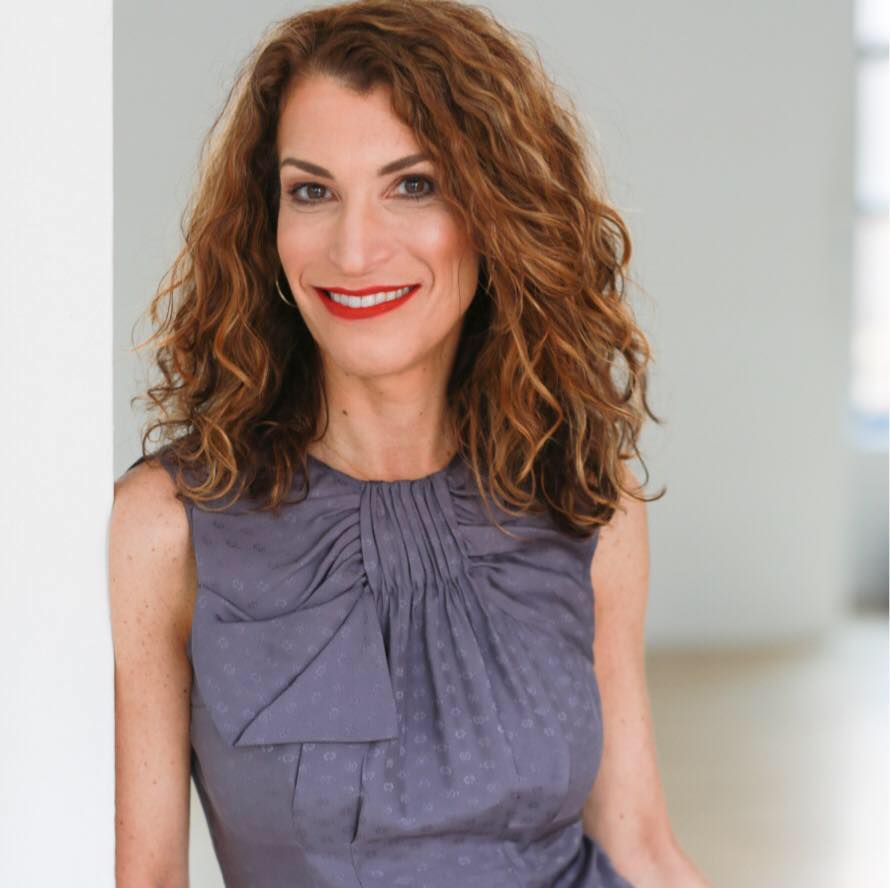
“I heard in my recovery program that if I chased it, I could have a life beyond my wildest dreams, and I do.”
— Lisa Smith
To me, Lisa Smith is a trailblazer for professional women everywhere that struggle openly with addiction and mental illness and quite frankly that is a trail I want to be on. If you haven’t had a chance to read her book, I encourage you to spend some time with this raw and authentically dark page-turner on one woman’s tipsy path to redemption.
Q&A with Lisa Smith
I hope you’ll enjoy my short Q&A with Lisa. Although I’ve worked in media for over 20+ years, I don’t know that I have ever formally interviewed someone. Perhaps I should have googled top interview questions to ask. Instead, I just asked for things I wanted to know for myself.
AB: What is your favorite alcohol-free beverage?
LS: Mushroom chai team, mushroom chai latte, or some good old-school grapefruit Lacroix
AB: What are you reading right now?
LS: The Vanishing of Half by Brit Bennett, a story of twin sisters born in the south in the 1950s, an emotional family story that looks well beyond issues of race
AB: Favorite Quit-Lit book (that is not yours LOL)
LS: Lit by Mary Carr
AB: What do you miss about living in NYC?
LS: Bagels and the energy – but the California energy is right for me right now
AB: How did you know you wanted to leave law and transition over to what you are doing now?
LS: I was juggling my law career and being an advocate for well-being in the legal profession. It became clear I needed to choose one path to focus on. I did what was indicated and started Lisa Smith Advisory. I speak frequently at law firms, law schools, bar associations, and other organizations on these issues. As a consultant, I work with firms to structure and implement well-being initiatives that are both meaningful and practical for all stakeholders. I became an IACPRC Certified Recovery Coach, SHE RECOVERS® Coach which enables me to also coach individual employees and administrative staff members seeking recovery.
AB: Advice you’d give to someone in recovery, like me, on starting a new sober side hustle.
LS: We need more of you. We need more ambassadors for recovery.
AB: What is the weirdest fan email you’ve ever received (please don’t say it was from me)
LS: Surprisingly and very random, a man who worked on the pipeline 200 miles south of the North Pole read my book and it really moved him, enough to email me directly.
AB: What has been your favorite or most memorable media moment?
LS: Being on the TODAY show. No wait, actually I was on a greek island at a 10-day retreat led by Mary Karr and Rodney Crowell, and my book was included in People magazine weekly picks. That was pretty surreal.
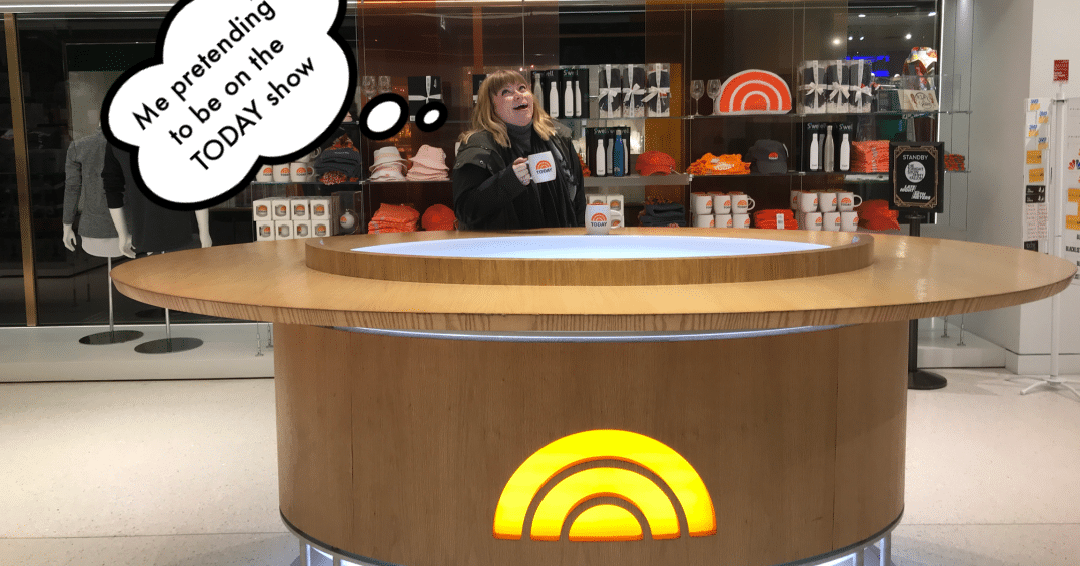
AB: How do you celebrate your sobriety birthday?
LS: Announcing it at a 12 step meeting, getting a coin, and something fun for dinner.
AB: Recovery has changed a lot since 2004 – what do you think are the pros and cons?
LS: Pros are recovery is coming to a broader audience in a positive way, making the stigma surrounding addiction less. Recovery out loud is a good thing. It paints a positive picture, fosters community, and I’m sure is saving lives. Cons – well it’s easier to disappear without accountability. It’s easy to be invisible and to compare your own recovery path to others.
If you’d like to learn more about Lisa, you can check out her website here. You will also want to check out her podcast with Tawny Lara called Recovery Rocks.
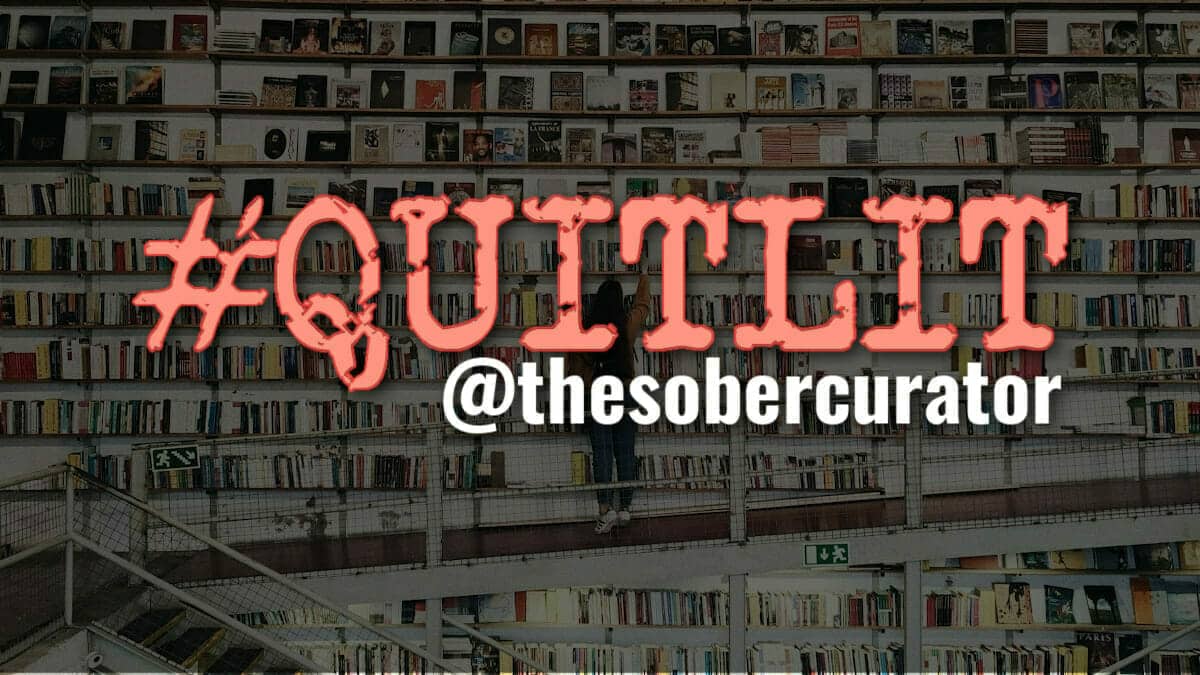
Reading is to the mind what exercise is to the body.
#QUITLIT is our curated list of addiction and recovery book reviews. All Sober Curator Contributors should be well-read, from addiction and recovery memoirs to fiction and self-help. You can also find us on Goodreads here.
What’s on your nightstand? We want to hear about what you’re reading and the addiction and recovery books you can’t live without. Please email us at thesobercurator@gmail.com
In the mood to #ADDTOCART? Check out our curated list of #QUITLIT books in our Amazon Shop.
Check out our newest section – ADDICTION FICTION WITH WILL THATCHER Fiction Book reviews featuring addiction, recovery, and mental health storylines.
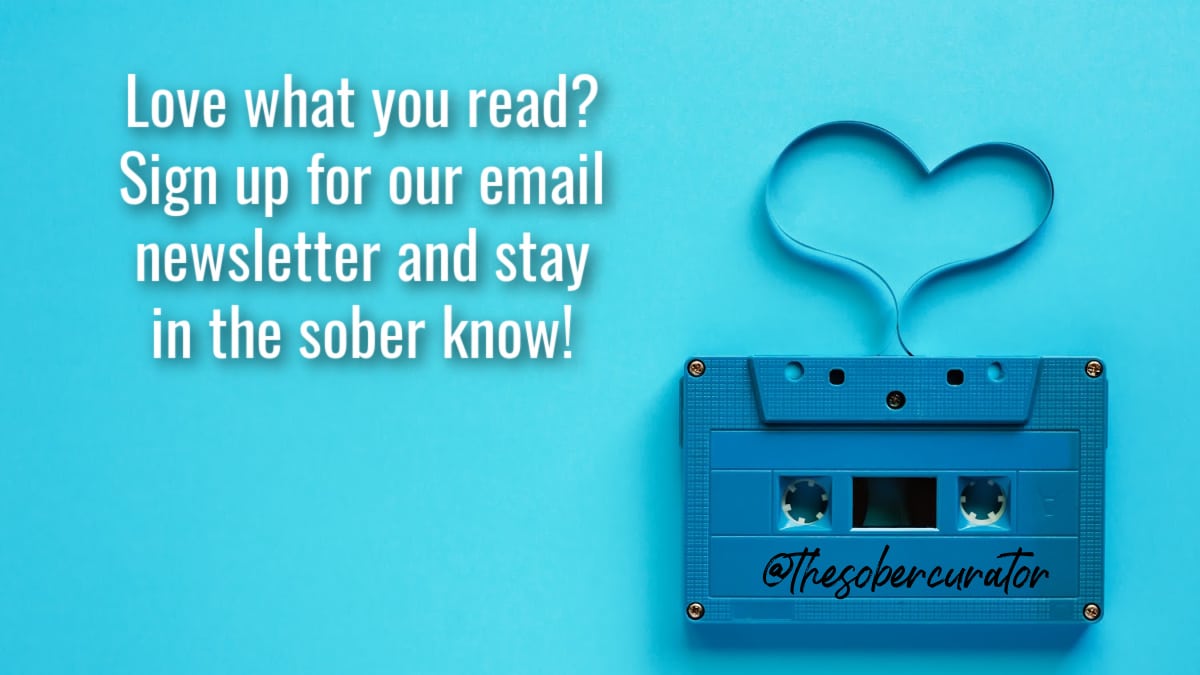
SOBERSCRIBE NOW!
Resources Are Available
If you or someone you know is experiencing difficulties surrounding alcoholism, addiction, or mental illness, please reach out and ask for help. People everywhere can and want to help; you just have to know where to look. And continue to look until you find what works for you. Click here for a list of regional and national resources.
